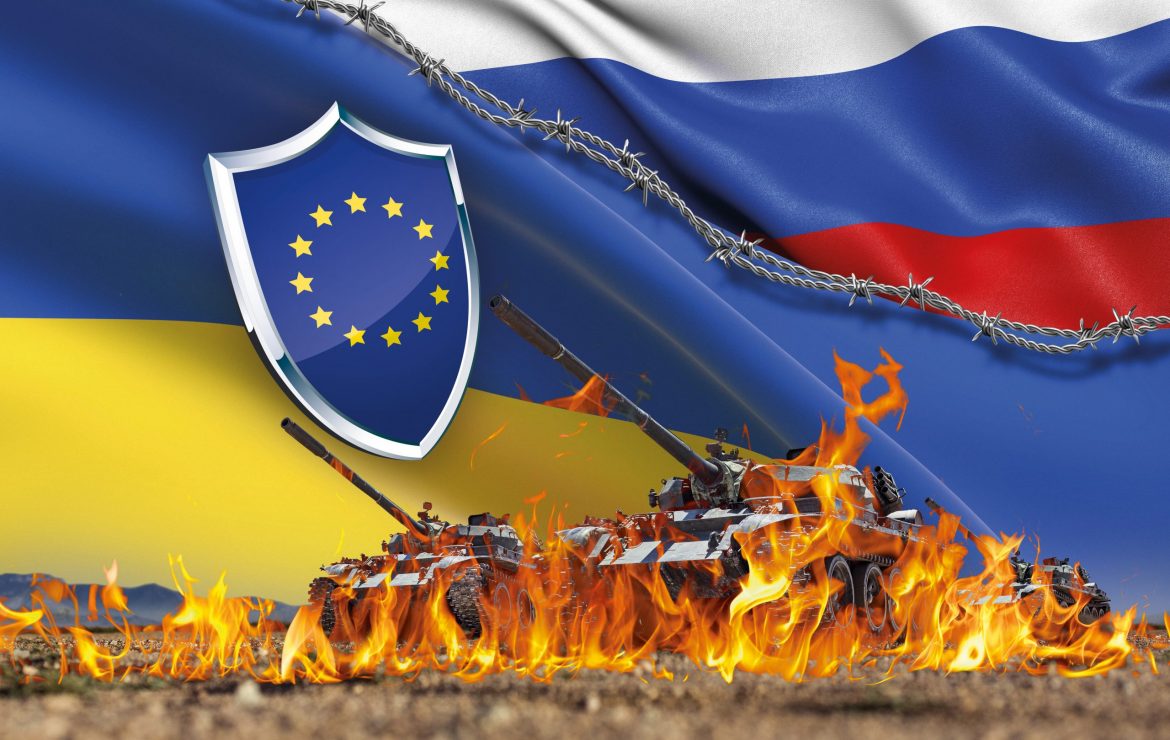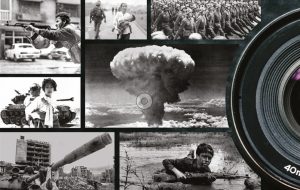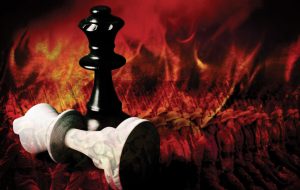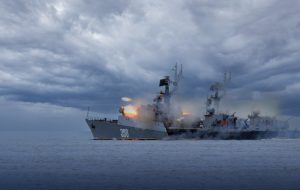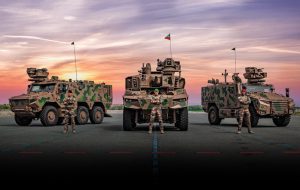In recent years, the European defense policy has witnessed the emergence of new instruments such as the Permanent Structured Cooperation (PESCO), the European Defense Fund (EDF), the European Intervention Initiative (EII), the European Peace Forum, and the Strategic Compass. This made the term defensive Europe (Europe de la defense), which did not exist until the end of 2017, a fact that has its tools and mechanisms capable of exerting influence on the balance of power and achieving the strategic independence of Europe (Autonomie Stratégique).
This study seeks to test (especially in the context of the Russian-Ukrainian war) the argument that the European Union has achieved more at the military level in the recent period than it has achieved in decades, in an effort to reposition itself militarily and geopolitically to ensure security effectiveness, defensive independence, and strategic position.
The most important geopolitical and military effects of the Russian-Ukrainian war on Europe
In the wake of the Cold War, the Europeans built a perception of the international order based on military and security pillars, including reliance on international rules and laws as the basis for international relations, and the establishment of a security alliance with the United States (NATO), based on common values and interests and keeping Europe away from wars and conflicts. However, this European perception is facing many challenges, due to the Russian-Ukrainian war, coinciding with the European Union’s celebration of its seventy-second anniversary.
The Ukrainian war is considered a turning point in the European defense policy, as it reshaped the map of world geopolitical conflict by making the latter a conflict zone again, and thus it is considered the worst crisis facing the old continent since World War II. The Russian invasion of Ukraine led the government of German Chancellor Schulz to abandon the traditional German approach rooted in balancing security considerations and commercial interests, in favor of restructuring the German army and providing it with the latest armament systems, by investing more than 5.2% of GDP in armaments, an increase of 20 billion euros, as well as creating a special fund for investments in the German army worth 100 billion euros.
For its part, Sweden announced the enhancement of its defense expenditures, Denmark committed to implementing the NATO standard of a military budget equal to 2% of its national income, while Romania and Latvia announced an increase in their defense spending to 2.5 percent of GDP, and Poland announced an increase in its defense spending to 3% by 2023.
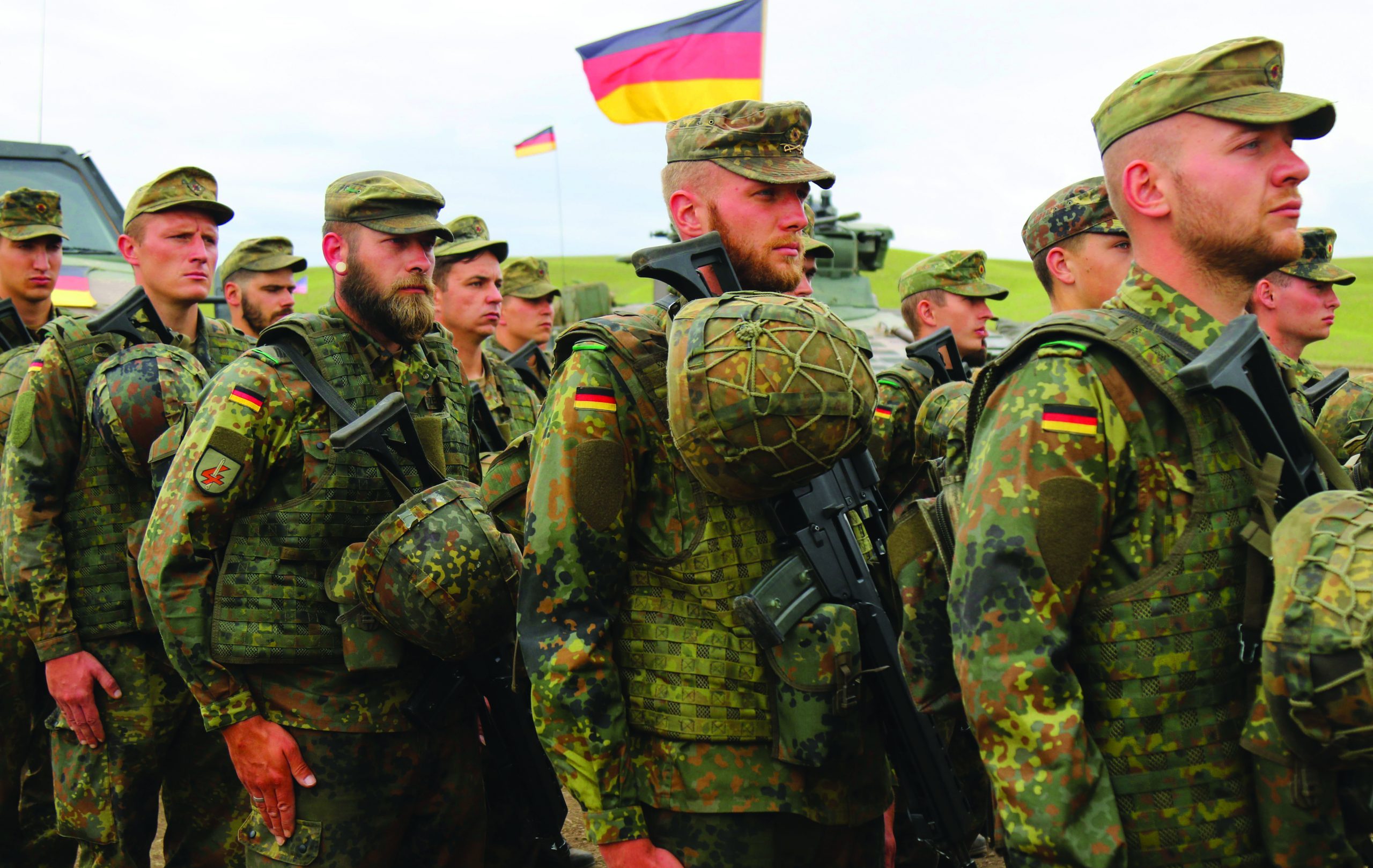
On the other hand, war changed the expectations map of some European countries regarding international relations. After decades of strategic neutrality regarding global tensions, countries such as Sweden, Finland, Austria, Switzerland, and Ireland adopted the Ukrainian position and closed their airspace to Russian aircrafts, and imposed sanctions on Moscow.
In an unprecedented development since 1939, Sweden provided qualitative military aid to Ukraine, Switzerland sent military supplies to Ukraine and imposed sanctions on Moscow, while Norway decided to provide Ukraine with advanced weapon systems, contrary to its policy of not sending weapons to non-NATO countries.
In a unique precedent in the history of the European Union whose charters and treaties prohibit directing its funds to military projects, or supplying weapons to countries outside the union, the Europeans provided Ukraine with more than a billion dollars in military aid.
Stemming from the fears arising from the Russian invasion of Ukraine, neutral countries such as Sweden and Finland announced their intention to join NATO and participated in its major war games in northern Norway in February 2022.
With the approval of 67 % of the electorate, Denmark chose to join the European defense policy that it has moved away from in the past three decades, and Danish Prime Minister Mette Frederiksen considered the result of the referendum a strong message to allies in Europe and NATO on the one hand, and to Russian President Vladimir Putin on the other, saying: “We are showing that when Putin invades a free country and threatens the stability of Europe, the rest of us come together.”
The return of war to Europe forced European countries to reconsider their separate military forces, Europe’s ability to have a reliable defense system, and the need to formulate a European strategy aimed at resisting European fragility against external pressures facing Europe now, as well as strengthening the military and geopolitical independence of the EU amidst the fierce competition in the international system.
Some mechanisms and institutions of European military and geopolitical repositioning

1- Permanent Structured Defense Cooperation (PESCO)
In November 2017, the 23 member states of the European Union formally signed in Brussels the Permanent Structured Cooperation in Security and Defense Agreement (PESCO), and committed to permanent strategic security and defense cooperation, creating the idea of a “common European defense union”, which allows the signatory European countries to cooperate more closely to build security and military capabilities by financing the development of armed military capabilities, increasing defense spending, reaching European defense integration, giving the Union a more coherent role in dealing with international and regional crises at all levels, and establishing a headquarters for the proposed unified military force in each of the signatory countries in the PESCO Agreement”.
2- The European Defense Fund (EDF)
The European Defense Fund was established to provide financial support for European defense capacity development projects. At the end of May 2022, the European Commission approved the second annual work program of the European Defense Fund (EDF), allocating 924 million euros to the enhancement of the defensive innovation capabilities and tools of member countries, under a new umbrella called the European Union Defense Innovation Scheme (EUDIS), which will work in a close partnership and under the auspices of the fund to stimulate defense innovation by drawing on the experience that Europe has developed for decades in civilian innovation, and strengthening cooperation between EU countries.
3- The European Intervention Initiative (EI2)
The European Intervention Initiative, or EI2, is a joint military project between 14 European countries outside of existing military structures such as NATO that aims to operate a permanent and rapid defense secretariat based on a network of European military liaison officers. The initiative aims to develop a common European strategic culture and improve ties and close cooperation between the armed forces of European countries that have the readiness and ability to carry out joint international military missions and operations, by improving interaction in four main areas: strategic forecasting and intelligence sharing, scenario development and planning, support operations, sharing experiences gained in the field and analyzing the critical issues they encounter.
The Strategic Compass
Josep Borrell, the senior representative of the European Union for Foreign Affairs and Security Policy and the main theoretician of the strategic compass, which he drafted at the request of the European Council to be an operational guide for the development of the European Union according to a defense and security vision, says that the compass is designed to answer three questions: What are the challenges and threats that Europe faces? How can Europe pool and manage its assets effectively? What is the best way to highlight Europe’s influence as an active entity at the regional and global levels?
Borrell then stressed that Europe is in danger and that it is experiencing a strategic downturn, warning that “it is time for Europe to learn to speak the language of force.” In this context, the European Union plans to establish a joint intervention force of 5,000 soldiers by 2025, to better coordinate armament projects.
The rapid response force is made up of “land, air, and sea-capable units” to rescue and evacuate European citizens caught up in conflicts, and through the European Defense Agency (EDA), Europe plans to invest in capabilities that it currently lacks, especially drones, tanks, anti-aircraft and anti-missile defense systems.
The European Heads of State and Government adopted the guiding document “The Compass”, which is the first white book for the European Union in the field of security and defence, during the European Council assembly held at the end of March 2022.
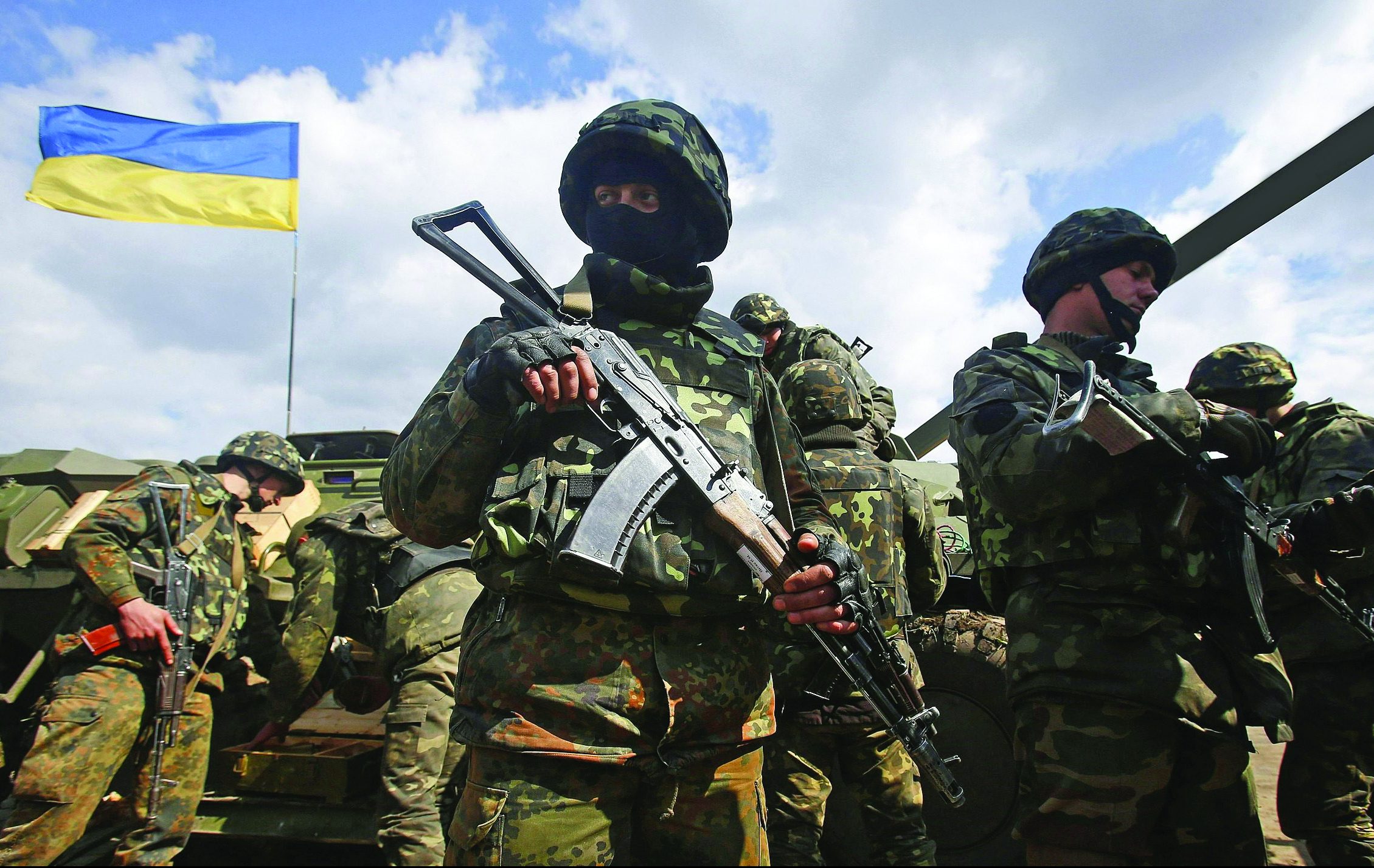
The EU thus begins a new phase in its defense and security policy, in the context of a deterioration in its strategic environment due to the return of war to Europe, the intensification of competition between the influential countries, and the persistence of crises in its neighborhood, and the world.
All of these mechanisms and institutions aim to reposition Europe militarily and geopolitically to enhance the EU’s ability to take effective measures in a world of growing brutality and suddenness, as well as boost its ability to protect the common strategic space and defend the values, rules, and principles of the EU, in addition to investing in strengthening technological sovereignty by improving defense capabilities and working with “partners” to strengthen the EU’s position as an international partner. As a direct result of the Russian-Ukrainian war, the European Defense Agency stressed the urgent need for effective European strategic independence, and that the most important thing impeding the achievement of this goal are three types of problems in the current European defense system:
1- The deficit of spending on the defense sector.
2- The deficit in the field of defense manufacturing.
3- The deficit in gear and equipment.
To fill the aforementioned gaps, the agency has outlined a set of measures.
Regarding the deficit in gear and equipment, there should be: stock renewal, replacement of systems inherited from the Soviet era, strengthening of air and missile defense systems, rapid creation of a task force to facilitate joint defense procurement, and the proposal of a short-term instrument for joint coordination of defense procurement.
Regarding strengthening the European industrial capacity in the field of defense, there should be: a proposal of a detailed program for European defense investment, a detailed mapping of existing and additional capabilities required, an initiative on important raw materials, including legislative measures, measures to ensure the availability of necessary skills for industrialization, making the necessary changes to the research and innovation framework to improve synergy between the civil and defense sector, support of critical technologies and industrial capabilities through strategic projects, and enhancement of industrialization budgets and military mobility.
In addition to the Russian-Ukraine war, there are more factors forcing Europe to move towards its military and geopolitical repositioning, for example, the US’s focus on the Indo-Pacific region, leaving the EU to showcase its ability to deal with crises in its vicinity and implement crisis management operations.
Sooner or later, the Europeans would have had to reinvent the European defense industry after the United States’ motto became “Buy American” and after they realized that to win the long geopolitical game, their efforts must be sustained.
In this context, we can understand France’s celebration of its National Day in 2019 under the banner of Defensive Europe and in the presence of several European leaders, including Angela Merkel and Theresa May, as well as the statements of the President of the European Commission, Jean-Claude Juncker, that the European Union needs to create its own unified army to protect its interests.
Such an army, according to the official, would help ensure a common foreign and defense policy for the European Union.
Conclusion
In Conclusion, Europe is likely to become stronger militarily and geopolitically. Since its inception, the EU has collectively progressed slowly, and that progress has been only in the context of crises, as the EU appears to unify only when it is going through some kind of crisis.
In the end, the Russian-Ukrainian war may represent another victory for geopolitics over globalization, as it will likely lead to a multipolar world order in which Europe may play a major military and geopolitical role.
However, some problems may stand in the way of achieving this:
1- Will NATO easily allow the EU to independently decide where, when and under what conditions its armed forces will be used, or will the EU be treated as a military extension to the Alliance?
2- The growth of that European militarism would have its effects first on the balance of power between Europe, Russia, and other regions of the world, and secondly on the budgets allocated to the service sector in those countries, such as health, education, and infrastructure. Will the European Union be able to avoid this?
On the other hand, in the midst of the Cold War, Russia was often placed at the center of the conflict between the West and the non-Western countries, not only as a historical adversary but as a country against which the West’s perception of itself politically, ideologically, strategically and even culturally, religiously and civilly was constantly being re-produced.
We can say that the situation has changed a lot for some Western groups in the past years, and the Russian-Ukrainian war clearly revealed that.
Some Europeans maintain that NATO and the United States are the main reasons for Russia’s war on Ukraine, and since 2006 the threat of Ukraine joining NATO has made military intervention expected and even legitimate, given Ukraine’s lack of respect for the Minsk Agreement, at the instigation of the United States.
Those same Europeans claim that Europe was satisfied with the role of the subordinate to American policies, and it is now paying the price alone.
This different and critical view from within Europe, which expresses the relative rift in the unity of Europe’s geopolitical position towards Moscow, may lead over time to many changes that may even define what is “The West” or “Europe”.
By: Dr. Wael Saleh, PhD (Lead researcher and Head of world Trends Research Unit in Trends Research center)


